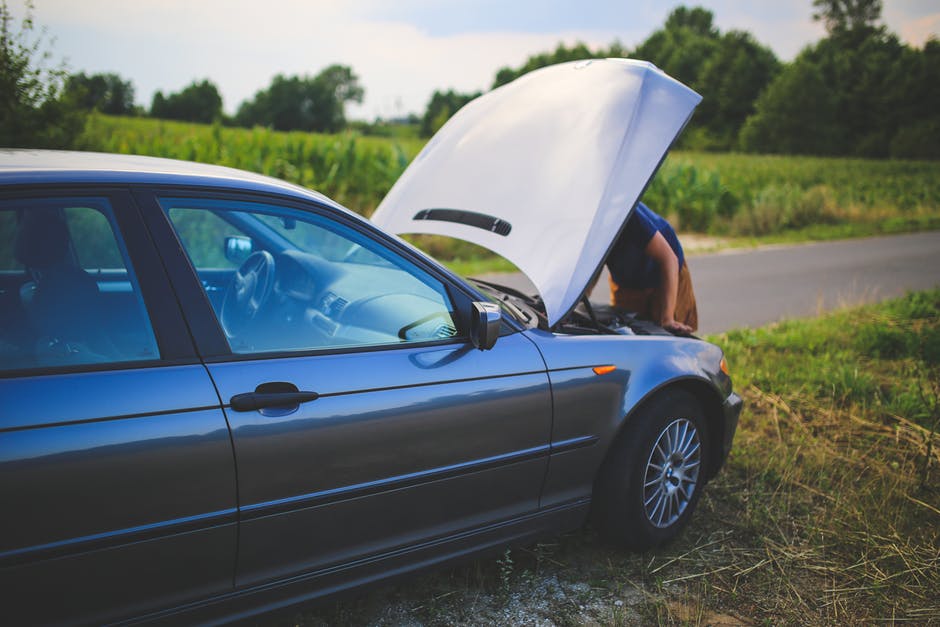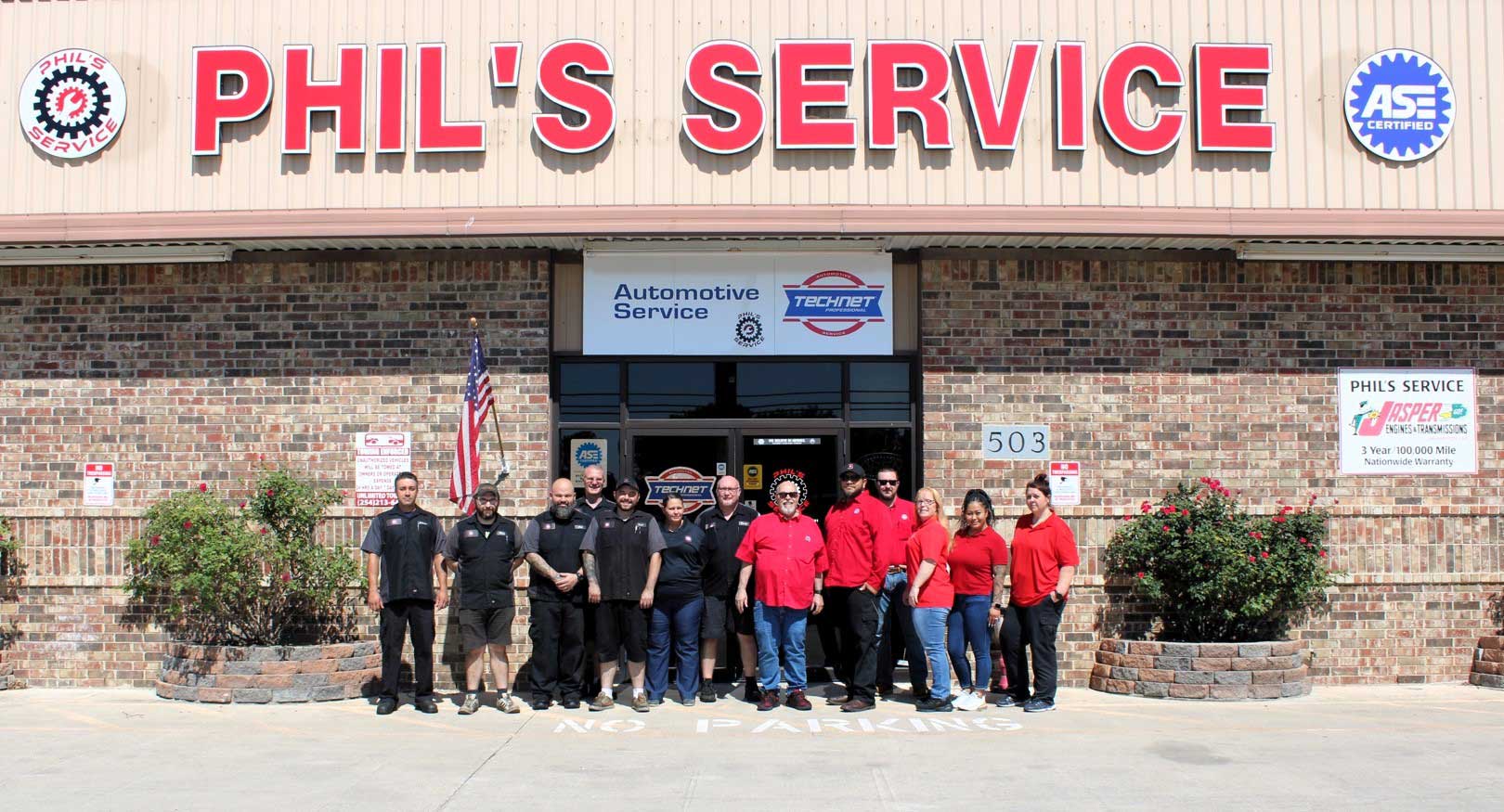Engine Problems Never to Ignore
Nothing can put a grimace on your face than seeing that dreaded "check engine light" illuminate on your dashboard.
The frightening thing about a check engine light on is that it can be anything. The anxiety you get from the problem being anywhere from a loose gas cap to a complete balance shaft failure can be gut-wrenching.
If you're faced with the stress and complexity of vehicle engine issues, be aware of some of the most common engine problems and how the experts solve them.
1. Loose or Missing Gas Cap
Probably one of the most satisfying codes your cars computer can throw is the "loose gas cap code." A loose gas cap will complicate the emissions system, which can create harmful vapor to be released into the air.
Most of the time, this can be from the gas cap not being tightened enough, or the gas cap is missing because you forgot to put it on during your last fill-up.
If you are sure the gas cap is tight and the code is still being thrown, check the seals on your cap. They can be missing, or they may start to deteriorate, which can cause vapors to escape.
The easy fix for this is to get a new gas cap.
2. Worn Spark Plugs
Spark plugs give your engine spark it needs to fire up the engine and get your vehicle moving. Symptoms of worn plugs include:
Poor Fuel Economy
When the spark plug ignites the fuel, it will help it burn more efficiently when operating correctly. If you get a low spark due to a worn plug, the fuel won't burn as efficiently, and you will start to see a drop in fuel economy.
Hard Starts
If your vehicle hesitates to fire up, it could be a sign of a worn-out spark plug. This is caused by some or all spark plugs in the cylinders not firing.
Sluggish acceleration
Spark plugs are made of materials that work cohesively to produce a spark that's hot enough to ignite the fuel to air ratio. When the spark plug isn't igniting the fuel as it should, this leads to reduced fuel delivery and poor acceleration.
The fix for this—either get the gap of your spark plugs adjusted or replace all spark plugs with new ones.
3. Dirty Oil
Don't ignore the "change oil" light! If you neglect to change your oil consistently, you can be looking at expensive trouble down the road. Your engine's oil can accumulate grit and grime from everyday engine use.
The oil in your engine will deteriorate over time and will lose its viscosity. When that happens, lubrication between all of the moving parts in the engine can be compromised and eventually seize up.
The best way to fix this is to get a regular oil changed based on the manufacturer's recommendations when you go in for your annual tune-up.
4. Oil Pump Failure
An oil pump that fails will wreak havoc on your engine because your engine isn't supplied with the oil it needs for lubricating its moving parts.
This is known as oil starvation, which can cause damage to your engine quickly.
5. Weird Engine Noises
Engine noise is a very worrisome symptom of potential engine problems. Out-of-the-ordinary noises coming from the engine can be from the engine parts such as the pistons, rods, or bearing wearing out or warping.
If you hear engine noises that are not normal such as knocking, clanking, or loud humming, take your car to a professional auto shop immediately.
6. Coolant Leak
Have you ever turned the car off and smelled a burning smell under the hood? If you pop the hood and see boiling green liquid that's all over your engine, it's most likely that your coolant is leaking from your radiator hoses. Another sign that your coolant is leaking is that you will see the engine temperature gauge rising.
If this is the case, you need to take your car to a professional to get this fixed because if you don't, you can damage your engine from high engine temperatures.
7. Smoke Coming Out of Your Exhaust Pipe
White smoke coming out of your exhaust can be regular on startup, especially during winter driving conditions, but this should only last for a brief second. This is just steam evaporating and shouldn't last for 15 to 20 seconds.
If white smoke is coming out of your exhaust pipe longer than 20 seconds, this could be a sign of deeper trouble.
This could be a sign of coolant leaks, broken fuel pump, or worse, a cracked cylinder head.
If the smoke is black, this could be a dirty air filter, oil leak, or rich fuel/air ratio.
8. Stalling
Your car stalling is a good sign that you might have engine problems. One of the reasons this might happen could be with problems with the fuel delivery system. This could be caused by fuel leaks, kinked fuel lines, or a clogged fuel filter.
Another reason could be from low engine compression, which is caused by worn cylinders, piston rings, or leaking valves.
9. Water in the Engine
Water is not a friend to the engine in any way. You want to make sure you keep your engine as dry as possible, so if you happen to come across minor flooding in the road, you should probably think twice before trying to cross.
When water enters the intake manifold and into the engine, this can hydro lock your motor. When your motor is hydro locked, you're better off buying a new car.
Never Ignore Engine Problems
Ignoring any of these engine problems in this list will almost end up costing you thousands. Always take the safe route and take your car to a trusted auto mechanic that works on engines. If you're having engine problems contact us today, and we will help you with all of your engine needs.
If you're faced with the stress and complexity of vehicle engine issues, be aware of some of the most common engine problems and how the experts solve them.
Nothing can put a grimace on your face than seeing that dreaded "check engine light" illuminate on your dashboard.
The frightening thing about a check engine light on is that it can be anything. The anxiety you get from the problem being anywhere from a loose gas cap to a complete balance shaft failure can be gut-wrenching.
If you're faced with the stress and complexity of vehicle engine issues, be aware of some of the most common engine problems and how the experts solve them.
1. Loose or Missing Gas Cap
Probably one of the most satisfying codes your cars computer can throw is the "loose gas cap code." A loose gas cap will complicate the emissions system, which can create harmful vapor to be released into the air.
Most of the time, this can be from the gas cap not being tightened enough, or the gas cap is missing because you forgot to put it on during your last fill-up.
If you are sure the gas cap is tight and the code is still being thrown, check the seals on your cap. They can be missing, or they may start to deteriorate, which can cause vapors to escape.
The easy fix for this is to get a new gas cap.
2. Worn Spark Plugs
Spark plugs give your engine spark it needs to fire up the engine and get your vehicle moving. Symptoms of worn plugs include:
Poor Fuel Economy
When the spark plug ignites the fuel, it will help it burn more efficiently when operating correctly. If you get a low spark due to a worn plug, the fuel won't burn as efficiently, and you will start to see a drop in fuel economy.
Hard Starts
If your vehicle hesitates to fire up, it could be a sign of a worn-out spark plug. This is caused by some or all spark plugs in the cylinders not firing.
Sluggish acceleration
Spark plugs are made of materials that work cohesively to produce a spark that's hot enough to ignite the fuel to air ratio. When the spark plug isn't igniting the fuel as it should, this leads to reduced fuel delivery and poor acceleration.
The fix for this—either get the gap of your spark plugs adjusted or replace all spark plugs with new ones.
3. Dirty Oil
Don't ignore the "change oil" light! If you neglect to change your oil consistently, you can be looking at expensive trouble down the road. Your engine's oil can accumulate grit and grime from everyday engine use.
The oil in your engine will deteriorate over time and will lose its viscosity. When that happens, lubrication between all of the moving parts in the engine can be compromised and eventually seize up.
The best way to fix this is to get a regular oil changed based on the manufacturer's recommendations when you go in for your annual tune-up.
4. Oil Pump Failure
An oil pump that fails will wreak havoc on your engine because your engine isn't supplied with the oil it needs for lubricating its moving parts.
This is known as oil starvation, which can cause damage to your engine quickly.
5. Weird Engine Noises
Engine noise is a very worrisome symptom of potential engine problems. Out-of-the-ordinary noises coming from the engine can be from the engine parts such as the pistons, rods, or bearing wearing out or warping.
If you hear engine noises that are not normal such as knocking, clanking, or loud humming, take your car to a professional auto shop immediately.
6. Coolant Leak
Have you ever turned the car off and smelled a burning smell under the hood? If you pop the hood and see boiling green liquid that's all over your engine, it's most likely that your coolant is leaking from your radiator hoses. Another sign that your coolant is leaking is that you will see the engine temperature gauge rising.
If this is the case, you need to take your car to a professional to get this fixed because if you don't, you can damage your engine from high engine temperatures.
7. Smoke Coming Out of Your Exhaust Pipe
White smoke coming out of your exhaust can be regular on startup, especially during winter driving conditions, but this should only last for a brief second. This is just steam evaporating and shouldn't last for 15 to 20 seconds.
If white smoke is coming out of your exhaust pipe longer than 20 seconds, this could be a sign of deeper trouble.
This could be a sign of coolant leaks, broken fuel pump, or worse, a cracked cylinder head.
If the smoke is black, this could be a dirty air filter, oil leak, or rich fuel/air ratio.
8. Stalling
Your car stalling is a good sign that you might have engine problems. One of the reasons this might happen could be with problems with the fuel delivery system. This could be caused by fuel leaks, kinked fuel lines, or a clogged fuel filter.
Another reason could be from low engine compression, which is caused by worn cylinders, piston rings, or leaking valves.
9. Water in the Engine
Water is not a friend to the engine in any way. You want to make sure you keep your engine as dry as possible, so if you happen to come across minor flooding in the road, you should probably think twice before trying to cross.
When water enters the intake manifold and into the engine, this can hydro lock your motor. When your motor is hydro locked, you're better off buying a new car.
Never Ignore Engine Problems
Ignoring any of these engine problems in this list will almost end up costing you thousands. Always take the safe route and take your car to a trusted auto mechanic that works on engines. If you're having engine problems contact us today, and we will help you with all of your engine needs.


